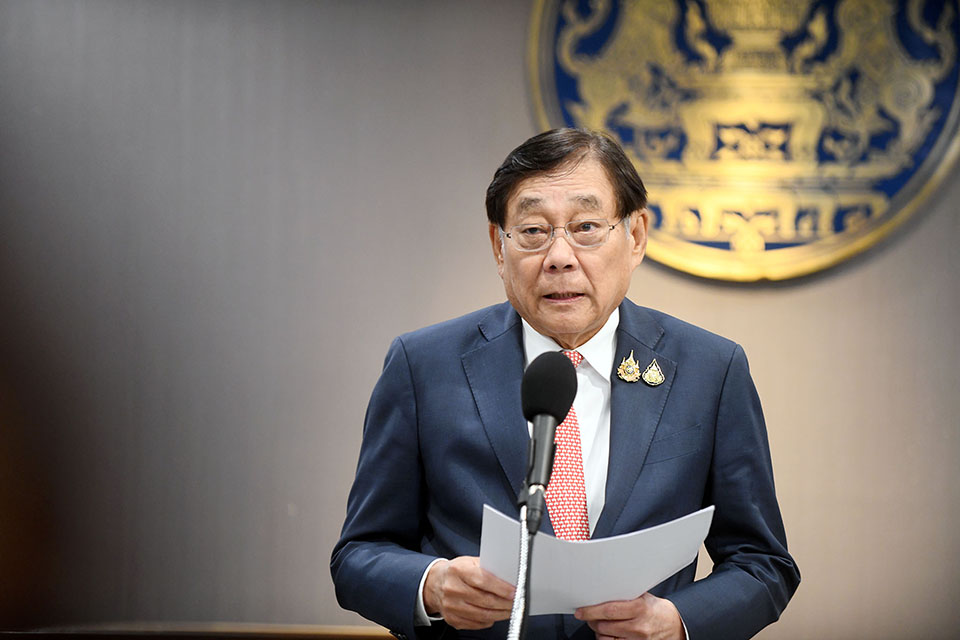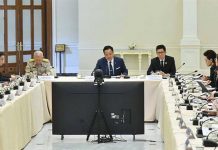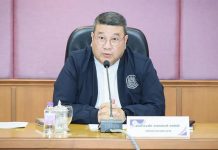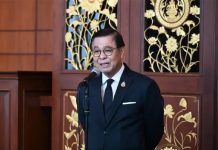
BANGKOK, Thailand – Thailand is pushing for a 10% reduction in U.S. import tariffs as part of a broader strategy to deepen economic cooperation and expand bilateral trade and investment. Deputy Prime Minister and Finance Minister Pichai Chunhavajira announced that the Thai government submitted an official trade proposal to U.S. authorities last week, signaling a strong intent to reposition Thailand as a key economic partner in the Indo-Pacific region.
The proposal, prepared by Thailand’s Ministry of Commerce and endorsed by Prime Minister Paetongtarn Shinawatra, was sent to U.S. Treasury Secretary Scott Bessent and the Office of the United States Trade Representative (USTR) on May 8. It includes five major components aimed at strengthening mutual trade interests and enhancing market access.
Key Pillars of the Thai Proposal
Strategic Economic Alignment:
Thailand is proposing enhanced cooperation with the U.S. in several strategic sectors including data centers, artificial intelligence (AI), and advanced manufacturing. The country seeks to position itself as a regional hub for technology and innovation, complementing U.S. economic and security interests in Asia.
Expanded Imports from the U.S.:
Thailand is willing to increase imports of U.S. goods, particularly in sectors such as energy, agriculture, aviation equipment, and industrial services. Officials from the Ministry of Energy, EGAT, PTT, and PTT Exploration and Production (PTTEP) recently traveled to Alaska for talks with the state governor to explore energy cooperation opportunities.
Agricultural Market Access:
The proposal also includes expanded market access for U.S. agricultural products—such as fruits and animal feed corn—for processing and value addition in Thailand. This aligns with Thailand’s plan to increase value-added manufacturing and re-export processed goods.
Trade Compliance and Origin Integrity:
Thailand has pledged to strictly enforce regulations against the misuse of rules of origin, aiming to curb illegal transshipment and protect the integrity of bilateral trade. This would address longstanding U.S. concerns over product origin fraud in Southeast Asia.
Investment Promotion and Collaboration:
Thailand is participating in the 2025 SelectUSA Investment Summit, held in Washington, D.C., from May 11–14, with an official delegation led by Dr. Nalinee Taveesin, Thailand’s Trade Representative. The delegation includes leaders from the Joint Standing Committee on Commerce, Industry and Banking (JSCCIB) and key Thai private sector players. Their objective is to identify investment opportunities and expand Thai corporate presence in the U.S. market.
Outlook on Tariff Talks
Minister Pichai expressed optimism that U.S. tariffs on Thai goods—currently averaging around 36%—could be cut by 10%, in line with outcomes the U.S. has reached with larger trading partners. “If Thailand can secure timely meetings and conclude negotiations efficiently, we are confident that we can reach similar outcomes,” Pichai said.
He cited recent remarks by U.S. Treasury Secretary Scott Bessent at the Saudi-U.S. Investment Forum, where the Secretary described Thailand’s proposal as “a good one,” suggesting positive momentum for further talks. U.S. officials are now reportedly preparing for detailed negotiations, indicating that Thailand is being treated as a serious and constructive economic partner.
Mutual Economic Benefits Anticipated
While Thailand would increase imports from the U.S., particularly in sectors where it faces domestic shortages, officials argue this would strengthen Thai industry by facilitating local processing and manufacturing. The Finance Minister stressed that even with increased imports, Thailand’s trade deficit could narrow in the medium term due to greater re-export potential and stronger supply chain integration.
“Whether it’s petrochemicals, aircraft parts, or energy products, if we don’t import from the U.S., we’ll have to import from other countries anyway,” Pichai said. “Our approach ensures that we import competitively and responsibly, while maximizing long-term value for both economies.”
Thailand is also positioning itself to attract more foreign investment in automotive manufacturing, EVs, and supply chain infrastructure, reinforcing its reputation as a regional production base.
Next Steps
Thailand expects to begin formal discussions with the USTR soon. Two months have passed since the U.S. launched a 90-day consultation framework to review tariffs with multiple countries, and Thailand is seeking to finalize negotiations within that window.
Minister Pichai concluded that while the U.S. is focusing first on agreements with large trading partners, the Thai proposal is designed to be mutually beneficial and consistent with U.S. strategic goals. With aligned interests in trade, technology, and supply chain resilience, both sides appear poised for deeper collaboration. (TNA)










